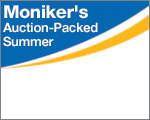|
The
Internet
Commerce Association has posted a
response to a press
release issued yesterday by the Coalition
Against Domain Name Abuse (CADNA) that erroneously
|
portrayed
cybersquatting as a criminal offense. It is
common knowledge that cybersquatting (registering
a domain name that includes a trademarked
term that the registrant has no right to) is a civil
matter, not criminal, yet CADNA continually
makes these kinds of misrepresentations.
Below is the statement released today by ICA
Executive Director Michael Collins. For
those not versed in trademark law, it includes
many important points that will help you
understand trademark issues:
Internet
Commerce Association
Response to CADNA
ICA condemns cybersquatting, but
observes
that it is a civil and not a criminal matter.
(Washington
DC, November 06) – On Wednesday, November 5
The Coalition Against Domain Name Abuse (CADNA)
released a statement that implied that |

Michael
Collins
ICA Executive Director |
|
cybersquatting is a
criminal activity. CADNA said in its release "CADNA
has been working diligently to further international
and national policies that combat the practice of
cybersquatting...As brands continue to learn about
the prevalence and practice of online criminal
activities..." The Internet Commerce
Association vigorously opposes cybersquatting.
However, it is important to note that cybersquatting
is a civil matter, not a criminal one. |
There
is a good reason that cybersquatting is a civil
matter and not a crime. It involves a dispute between two
parties about intellectual property, a protected mark.
Trademark protection does not provide exclusive use of a
mark in every class of commerce. Protection is even
limited by geographic region in some cases. Therefore,
there are many opportunities for dispute about who has
rights to a mark in any given use. There are many famous
marks that have multiple uses and multiple owners.
This is how Olympic can be used for the famous
international athletic competition that the world enjoys
and also for Olympic Airlines, Olympic Arms and Olympic
Paint. In fact, Olympic Paint owns Olympic.com and it is
not a cybersquatter against other legitimate users of the
Olympic mark. Trademark owners are already provided
with two highly effective methods for dealing with the
trademark abuse known as cybersquatting – the Uniform
Dispute Resolution Process (UDRP) administered by the Internet
Corporation for Assigned Names and Numbers (ICANN),
and national laws such as the U.S. Anti-Cybersquatting
Consumer Protection Act (ACPA). Both these avenues
balance the rights of trademark owners against the
legitimate interests and considerable investments of
domain name investors and developers.
|

|
Under the UDRP it is
the responsibility of trademark owners to create
and enforce their marks against alleged
infringement by identical or confusingly similar
domain names. The same legal principle is the law
in many jurisdictions; for example, in the U.S.
this requirement was recently affirmed in
prominent trademark litigation in which eBay
prevailed against the luxury brand Tiffany.
Disputes about trademark infringement, including
disputes about domain names, should be resolved by
civil courts without involving law enforcement. It
would not be an appropriate use of government
resources for law enforcement to expend its |
|
scarce resources in
disputes about intellectual property unless a
domain name is being used to directly facilitate a
related criminal enterprise. It would not make
sense for someone from the Olympic Committee to
call the police if they find a picture at
Olympic.com that includes a child in a soccer
uniform.
|
Cybersquatting
is a problem that negatively impacts many businesses.
Trademark owners, advertisers and domain name investors
and developers alike are hurt by this abusive practice and
many domain service providers employ notice and takedown
complaint programs to assist trademark owners in
protecting their rights. The Internet Commerce Association
has adopted a Code of Conduct that prohibits intentional
trademark infringement, has supported actions now being
undertaken by ICANN to end abusive domain name
“tasting” that facilitates cybersquatting, and will
continue to support policy and legislation that
effectively curbs cybersquatting and protects the rights
of domain name investors and developers. However, we
should all be careful to not overextend law
enforcement by suggesting that it should be involved in
resolving trademark disputes.
(Posted Nov.
6,
2008) To refer others
to the
post above only you can use this URL:
http://www.dnjournal.com/archive/lowdown/2008/dailyposts/11-06-08.htm |











